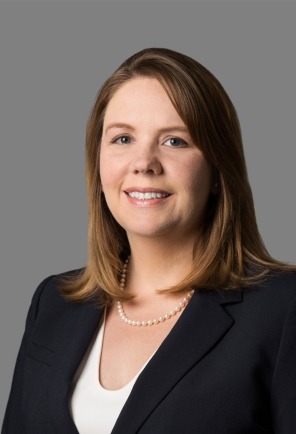8 Reasons to Pay Attention to the Toll Charge
With tax reform becoming very likely at the close of the year, taxpayers are at risk for unseen pitfalls. In particular, consider the toll charge on offshore earnings. Many taxpayers have kept the toll charge in the back of their minds, perhaps believing that the calculation would not apply or would be simple to compute. However, the toll-charge rules may surprise many taxpayers. Not only are more taxpayers likely to be affected than expected, but also the nuanced calculations must be completed with a quick turnaround.
Although Congress is still working through reconciliation of the tax bill, we have enough substance from the prior versions to predict the final design of the toll charge. Knowing there may not be enough time to react after passage of the bill, this edition of Tax Advisor Weekly sets forth just a few of the complications and complexities that taxpayers should be considering in the meantime.
Incorrect Calculations or Late Payments Could Result in Forfeiture of Installment Right
For entities and persons expecting a toll charge, the election to pay the charge over an eight-year period makes the cash tax less burdensome upfront. However, if a taxpayer’s calculations are understated or if a taxpayer is late in paying the charge, the ability to continue paying in installments may be voided, and all remaining liability may be due immediately. As we’ll discuss further below, the necessary calculations are not straightforward, and the timing to complete such calculations is limited. For many taxpayers, the first installment will be due on April 15, 2018.
Many U.S. Shareholders Will Be Surprised to Learn They Could be Subject to the Toll Charge
The new rules include a broader group of taxpayers subject to the toll charge beyond the typical U.S. multinational. The new modified constructive ownership rules could, for example, include U.S. shareholders (including individuals) of so-called 902 corporations (including some that are not controlled foreign corporations).
Current Transactions Could Be Affecting the Toll Charge
With multiple measurement dates for determining earnings that are subject to the charge, there are seemingly routine transactions happening now that might affect the final toll-charge amount. Some transactions, for example, could increase earnings and profits (E&P), or increase the amount of cash on hand, and therefore affect the overall income inclusion. Note that some transactions that might be reducing E&P or cash could be disallowed later if deemed to be abusive.
Some Taxpayers Might Be Paying the Toll Charge a Year Later
Some U.S. shareholders of foreign corporations with tax years ending before December 31, 2017, may have a longer period of time to prepare their toll-charge calculations and make their first installment payment.
Taxpayers Must Ask for Permission to Fix Double-Counted Assets
Some global groups with intercompany transactions might see their foreign assets being double-counted in the calculations, resulting in exaggerated balances of E&P or cash and, hence, an increased toll charge. In expectation of this issue, the new rules would allow taxpayers to prove to the Secretary of the Treasury that they qualify for relief from double-counting.
Taxpayers May Exclude Some Types of E&P
Not all E&P held in foreign companies is subject to the toll charge. For example, E&P during years where entities were not CFCs or 902 corporations may be partially or fully excluded. Additionally, pre-1987 E&P, previously taxed Subpart F income and E&P that has already been taxed by the U.S. is excluded.
Taxpayers Will Be Frustrated by Complexities of New Calculations
The mechanical rules for applying the toll charge to E&P calculations present several difficulties for taxpayers — not only in definitional terms, but also in terms of gathering all necessary information. For example, the toll charge requires E&P and cash calculations as of two (possibly three) different measurement dates, one of which is November 9, a date companies are unlikely to use as a measurement date.
Finance Departments May Not Have Time to Complete Calculations
The toll charge will have a significant impact on a company’s financial statements. If tax reform passes before the year-end, many companies will need to perform calculations within a matter of weeks to meet their filing deadlines. Finance departments will need to urgently navigate many complexities, including determining historical earnings and tax payments, capacity to use foreign tax credits, whether to take benefit for net operating loss (NOL) carryovers, and any uncertain positions created by the toll charge.
Alvarez & Marsal Taxand Says:
More so than other changes in the tax reform proposals, the toll charge on offshore earnings demands intensive and immediate effort. Taxpayers should be determining whether they are subject to the tax and identifying practical and feasible ways to perform complex calculations.
Ask us or read our analysis to see how we are approaching these calculations with our clients.
Disclaimer
The information contained herein is of a general nature and based on authorities that are subject to change. Readers are reminded that they should not consider this publication to be a recommendation to undertake any tax position, nor consider the information contained herein to be complete. Before any item or treatment is reported or excluded from reporting on tax returns, financial statements or any other document, for any reason, readers should thoroughly evaluate their specific facts and circumstances, and obtain the advice and assistance of qualified tax advisers. The information reported in this publication may not continue to apply to a reader's situation as a result of changing laws and associated authoritative literature, and readers are reminded to consult with their tax or other professional advisers before determining if any information contained herein remains applicable to their facts and circumstances.
About Alvarez & Marsal Taxand
Alvarez & Marsal Taxand, an affiliate of Alvarez & Marsal (A&M), a leading global professional services firm, is an independent tax group made up of experienced tax professionals dedicated to providing customized tax advice to clients and investors across a broad range of industries. Its professionals extend A&M's commitment to offering clients a choice in advisers who are free from audit-based conflicts of interest and bring an unyielding commitment to delivering responsive client service. A&M Taxand has offices in major metropolitan markets throughout the United States and serves the United Kingdom from its base in London.
Alvarez & Marsal Taxand is a founder of Taxand, the world's largest independent tax organization, which provides high quality, integrated tax advice worldwide. Taxand professionals, including almost 400 partners and more than 2,000 advisers in 50 countries, grasp both the fine points of tax and the broader strategic implications, helping you mitigate risk, manage your tax burden and drive the performance of your business.
To learn more, visit www.alvarezandmarsal.com or www.taxand.com



